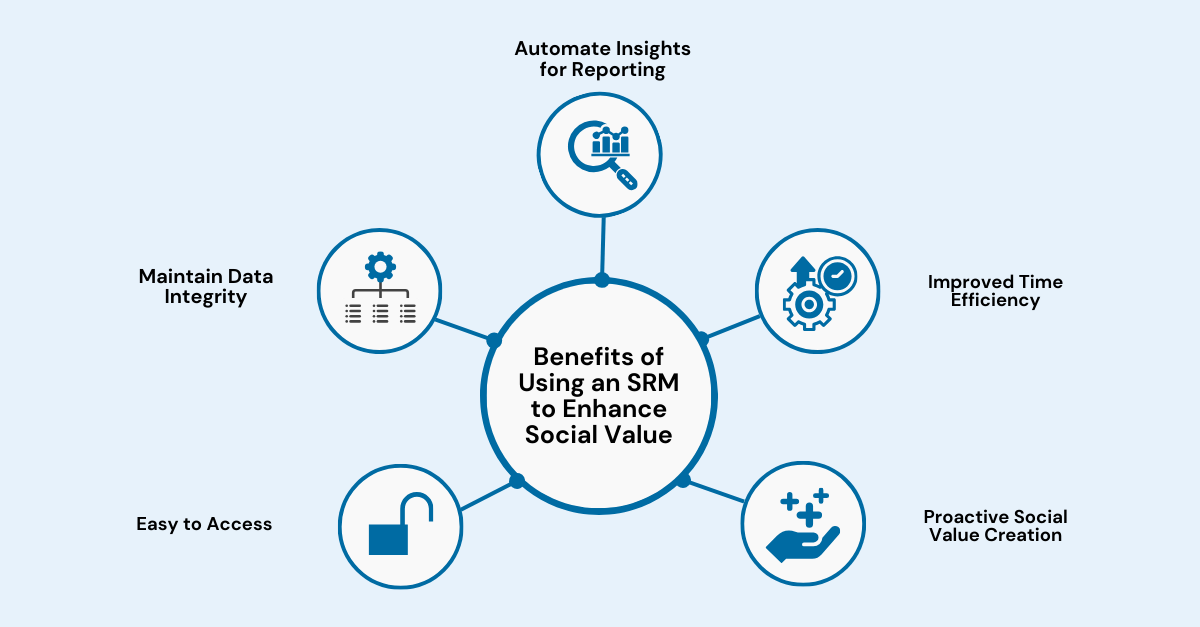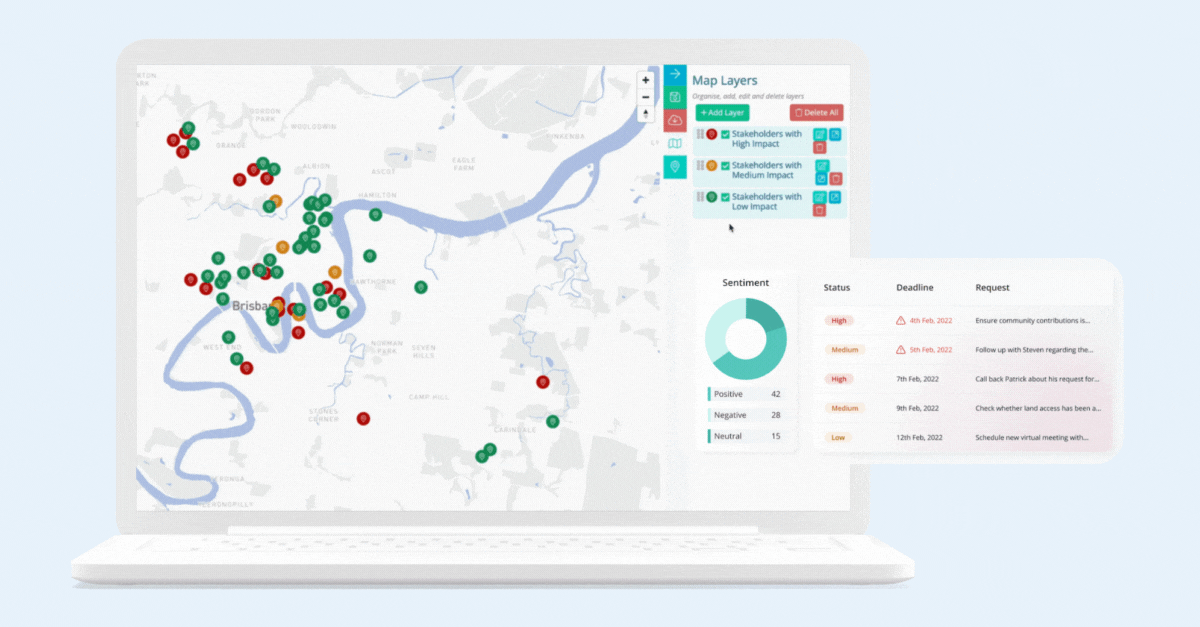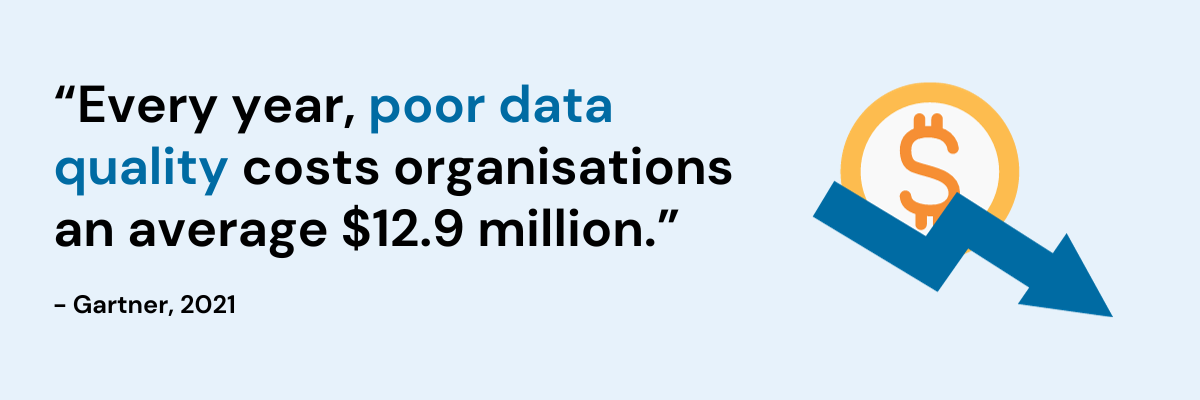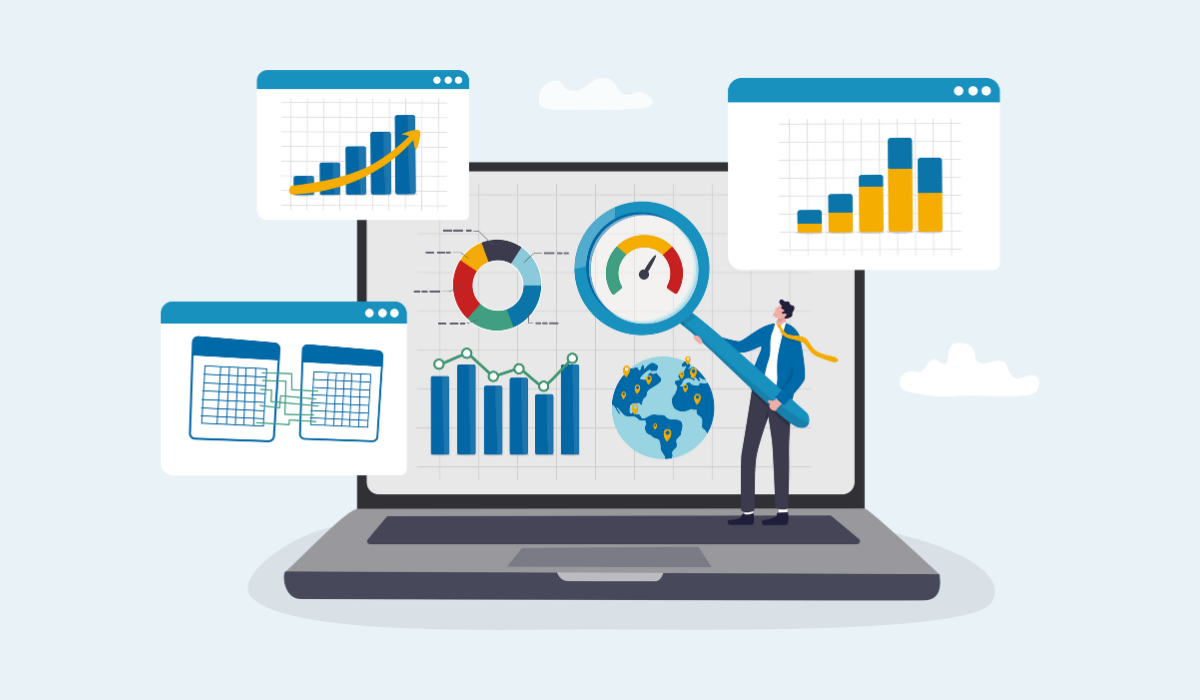Traditional spreadsheets have proved to be a valuable tool in storing and managing stakeholder data. However, as businesses evolve, so do their requirements for effective stakeholder management. Therefore, you might consider implementing a Stakeholder Relationship Management (SRM) system to enhance your social value, and here’s why.
With the fast-paced evolution of technology, traditional spreadsheets are beginning to appear more outdated and now outmatched. However, Stakeholder Relationship Management (SRM) systems have emerged as a valuable solution for this ever-changing environment.
In our latest article, we’ll explore how SRMs can seamlessly elevate your stakeholder management to help enhance your overall social value.
What is Social Value in Stakeholder Management?
Social value in stakeholder management is when organisations actively contribute to a positive impact on both society and the environment. But to do this, it requires organisations to collaborate between their community, stakeholders, and corporate leadership. Organisations can promote social value by supporting the economy, environment, and society while seeking ways to improve their community’s overall well-being and day-to-day lives.
For instance, let’s imagine a large renewable energy corporation working on a project to build a wind farm in a rural area:
- Stakeholder Engagement: To remain engaged and keep their key stakeholders informed, the renewable energy corporation might hold public meetings to maintain transparency and address any environmental or societal concerns.
- Environmental Responsibility: To help promote social value, the renewable company would then conduct an environmental impact assessment to reduce any stakeholder’s concerns regarding the project. These concerns might include disrupting local ecosystems, protecting wildlife habitats, and ensuring responsible land use.
- Community Benefits: To recognise the importance of community support, the renewable company might then establish a community benefit fund by contributing a portion of the wind farm’s revenue to support local projects and initiatives. This fund may be used for infrastructure improvements, educational programs, or other community needs.
In this scenario, the renewable company actively manages relationships with stakeholders, emphasising engagement, environmental responsibility, and community benefits. These efforts create social value by fostering positive community relationships, minimising environmental impact, and contributing to the well-being of the local area through sustainable energy production.

Benefits of using an SRM to enhance Social Value
Here are five reasons why you should use stakeholder relationship management software to improve your social value.
- Automate Insight Generation for Reporting
- Maintain Data Integrity
- Improved Time Efficiency
- Easy to Access
- Proactive Social Value Creation
1. Automate Insight Generation for Reporting
While spreadsheets have traditionally been used to analyse stakeholder data, SRMs can provide more advanced reporting features to further streamline your project’s process. For example, you can report and analyse your data using reporting features such as donut graphs, event statistics, snapshot reports, and stakeholder mapping. SRMs enable you to consolidate your data into customised reports to help you gain a deeper insight of your stakeholders.

Example of Consultation Manager’s Advanced Reporting Features
For example, by utilising Consultation Manager’s interactive stakeholder mapping feature, you can pinpoint your stakeholders, identify issues, track sentiment interactions, and other relevant properties within your system. Additionally, you can add and filter layers to better understand your stakeholder groups or sentiments in a visually appealing and interactive way. This can help you tailor your stakeholder engagement strategies to make more well-informed decisions.

2. Maintain Data Integrity
As your organisation grows, handling long spreadsheets can become an exhausting task and mistakes are more likely to occur. According to Forbes, nearly 9 out of 10 spreadsheets contain errors, with a substantial portion attributed to human error. But while mistakes are natural, it can also be costly. Gartner reported that these errors can cost organisations $12.9 million on average, for having poor quality data.
Therefore, to mitigate this risk, SRM systems offer a robust solution to address data quality issues. They incorporate features like audit trails, data cleansing, user training, access controls, automation, and centralising data to ensure effective stakeholder management. These features are used to strengthen data quality measures, while reducing the likelihood of costly human errors.
3. Improved Time Efficiency
SRM’s can reduce the time and effort spent on administrative work, which allows team members to allocate their resources more strategically. For instance, SRM can automate many manual and repetitive tasks, such as data entry, appointment scheduling, and follow-up reminders.
SRM software can also streamline data management by centralising stakeholder information in one location. This eliminates the need to search through scattered spreadsheets or multiple systems to locate critical data, saving valuable time. As a result, users can readily access data they require at any given time. For instance you might use Consultation Manager’s snapshot reports to view previous interactions with a stakeholder or updates on any new complaints or concerns.
4. Easy to Access
Effective collaboration can become challenging, especially if you’re solely relying on traditional spreadsheets. It can pose difficulties for larger teams due to the challenges associated with managing access and ensuring the security of information.
To illustrate, a common question could involve “Now that my manager has left the organisation, how can I access all of her previous work related to our stakeholders?” Or alternatively, imagine working on a stakeholder engagement project with a team spread across various locations, all while aiming to prevent any miscommunication or misunderstandings regarding what version of the spreadsheet is the most correct and up-to-date.
Centralising stakeholder data in a single location allows authorised users to effortlessly retrieve stakeholder information from anywhere. Consequently, SRM solutions foster collaboration, guaranteeing both you and your team have access to real-time data. As a result, this enhances your stakeholder engagement efforts and ultimately leads to improved communication and coordination amongst your team members.
5. Proactive Social Value Creation
While spreadsheets can assist in analysing your stakeholder information, SRM software can help empower you to take action based on that data. For example, by incorporating data-driven insights into your stakeholder management, you can proactively pinpoint opportunities to create social impact and value.
Whether it involves addressing stakeholder concerns, supporting community initiatives, or aligning corporate social responsibility efforts, SRM software can transform your stakeholder data into actionable strategies.
By embracing an SRM system, you can enhance the efficiency of managing and reporting your stakeholder data, offering a wider array of options for streamlined processes. This comprehensive approach ensures that your stakeholder information is not only well-organised but also readily available for informed decision-making.
Furthermore, with SRM systems, you can stay ahead of evolving technology by constantly monitoring and adapting your strategies to meet the changing needs and expectations of your stakeholders. This adaptability fosters sustained social value creation and helps you remain responsive to your stakeholders’ concerns and aspirations.

